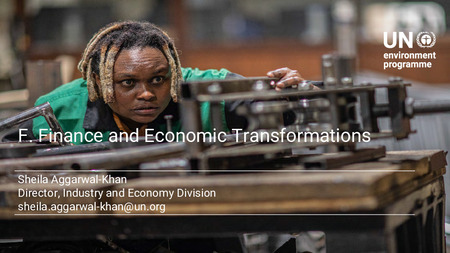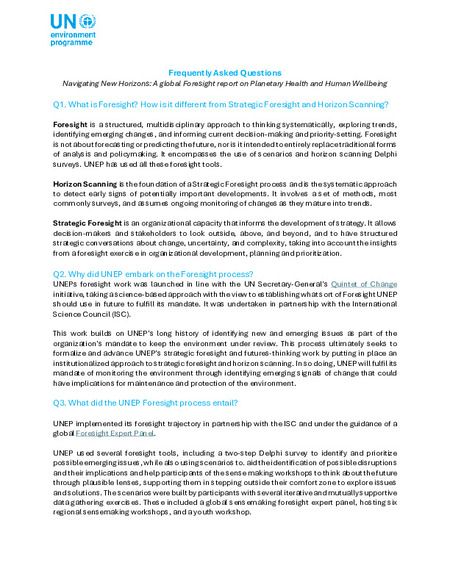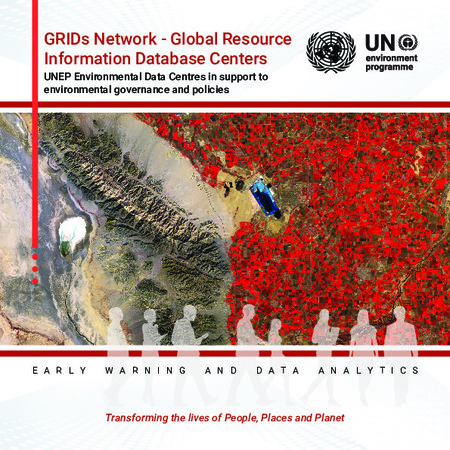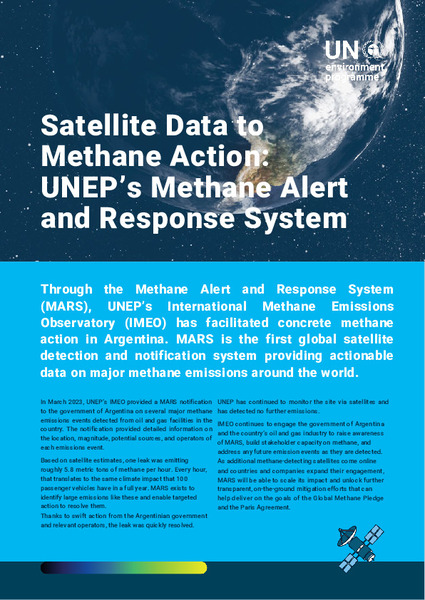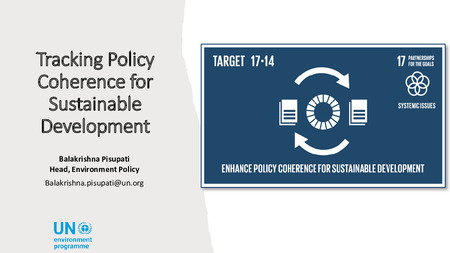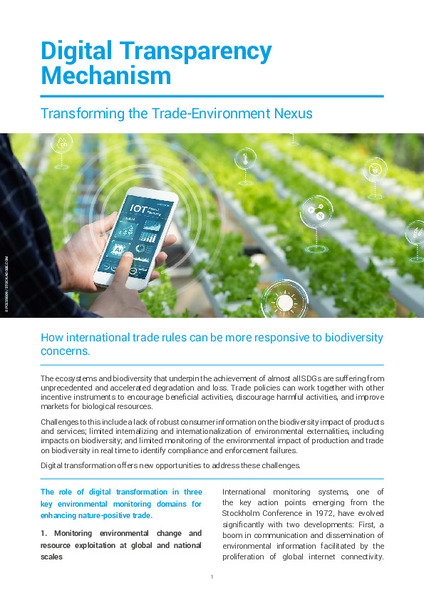Browsing Factsheets, Infographics and Brochures by Topic "Digital Transformations"
Now showing items 1-11 of 11
-
Finance and Economic Transformations Presentation
(2023)To transform the finance and economy-wide drivers of unsustainable consumption and production, so that growth of income and job is driven by policies and investments that aim to address the triple planetary crisis and ... -
Frequently Asked Questions - Navigating New Horizons: A Global Foresight Report on Planetary Health and Human Wellbeing
(2024-08)Foresight is a structured, multidisciplinary approach to thinking systematically, exploring trends, identifying emerging changes, and informing current decision-making and priority-setting. Foresight is not about forecasting ... -
GRIDs Network - Global Resource Information Database Centers: UNEP Environmental Data Centres in Support to Environmental Governance and Policies
(2024-02)One of UNEP’s key roles is to keep the World Environment under review for enhancing the science-policy interface and endorsement of the Global Environment Outlook. In this context, a resolution asked UNEP to upscale its ... -
Satellite Data to Methane Action: UNEP’s Methane Alert and Response System
(2023-11)Through the Methane Alert and Response System (MARS), UNEP’s International Methane Emissions Observatory (IMEO) has facilitated concrete methane action in Argentina. MARS is the first global satellite detection and ... -
Tracking Policy Coherence for Sustainable Development
(2023-08-29)A presentation on policy coherence for sustainable development -
The UNEP Foresight Briefs: Early Warning, Emerging Issues and Futures - 006Archive since August 2017... to the Future
(2024-02)Foresight Briefs highlight a hotspot of environmental change, feature an emerging science topic, or discuss a contemporary environmental issue. They provide a systematic way of examining possible alternative futures and ... -
Using Green and Digital Technologies to Reduce Food Waste at the Consumer Level - Case Study: Belgrade, Serbia
(2021)https://www.unep.org/explore-topics/green-economy/build-back-better -
Using Green and Digital Technologies to Reduce Food Waste at the Consumer Level - Case Study: Bogota Colombia
(2021)https://www.unep.org/explore-topics/green-economy/build-back-better -
Using Green and Digital Technologies to Reduce Food Waste at the Consumer Level-Case Study: Bangkok, Thailand
(2021)https://www.unep.org/explore-topics/green-economy/build-back-better



